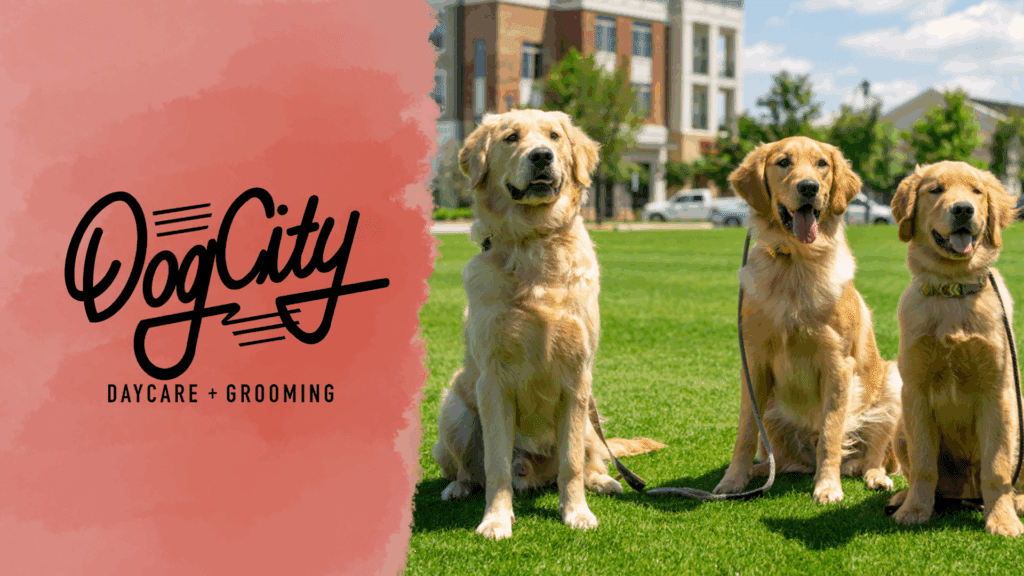Welcoming a new dog into your home is an exciting and rewarding experience—but it can also be a little overwhelming, especially for first-time owners. At DogCity West Seattle, we’ve helped countless new pet parents navigate the joys and challenges of raising a happy, healthy pup. To set you and your furry friend up for success, we’ve put together five essential tips and tricks, along with some common myths debunked to help you avoid rookie mistakes.
1. Establish a Routine Early (But Stay Flexible!)
Dogs thrive on consistency. A predictable schedule for feeding, walks, playtime, and potty breaks helps them feel secure and reduces anxiety. However, one common misconception is that routines must be rigid. While structure is important, life happens—and dogs are adaptable! The key is balance.
- Myth Debunked:“Sticking to an exact schedule is the only way to train a dog.”
- While routines help, dogs can adjust to slight variations. The real priority is meeting their needs consistently, not obsessing over the clock.
2. Socialization Is More Than Just Meeting Other Dogs
Many new owners assume socialization simply means letting their dog play with others. While dog interactions are important, proper socialization means exposing your pup to different environments, sounds, people, and experiences in a positive, controlled way.
- Tip: Start slow—introduce new sights and sounds (like traffic, umbrellas, or kids) gradually.
- Myth Debunked:“Puppies can’t go outside until they’re fully vaccinated.”
- While you should avoid high-risk areas (like dog parks), controlled outings (car rides, quiet streets) are safe and beneficial for early socialization. (Source: AVSAB)
3. Positive Reinforcement Works Better Than Punishment
Yelling or scolding a dog for misbehavior often creates fear rather than understanding. Instead, reward-based training (treats, praise, play) reinforces good habits effectively.
- Tip: Keep training sessions short (5-10 minutes) and fun!
- Myth Debunked:“A dog that misbehaves is being ‘dominant’ or ‘spiteful.’”
- Dogs don’t act out of spite—they respond to their environment. Most “bad” behaviors stem from boredom, lack of training, or anxiety.
4. Not All Human Foods Are Safe (But Some Are Great in Moderation!)
While some human foods (like carrots, blueberries, and plain cooked chicken) are healthy treats, others (chocolate, grapes, onions) are toxic.
- Safe Options: Pumpkin (for digestion), apples (no seeds), and plain peanut butter (xylitol-free).
- Myth Debunked:“Dogs can eat anything we eat as long as it’s not chocolate.”
- Many human foods (garlic, avocado, alcohol) are dangerous. Always check before sharing! (Source: ASPCA)
5. Exercise Needs Vary by Breed (And Mental Stimulation Matters Too!)
A tired dog is a happy dog—but exercise isn’t just about physical activity. Mental enrichment (puzzle toys, training games, sniff walks) is just as crucial.
- Tip: High-energy breeds (like Border Collies) need more than just walks; try agility or fetch!
- Myth Debunked:“Small dogs don’t need as much exercise.”
- While they may require less intense activity, small breeds (like Dachshunds) still need daily stimulation to prevent boredom.
Wrapping Up: Next Steps for First-Time Dog OwnersFinal Thoughts
Raising a dog is a learning process, and even experienced owners discover new things along the way. The most important thing? Patience, love, and a willingness to adapt. If you ever need extra support, DogCity West Seattle offers dog daycare, training resources, and expert advice to help you and your pup thrive.
Have questions or want to share your own tips? Visit us at DogCity West Seattle or drop a comment below!
We also recently highlighted our first Dog of the Month! And we have advice on helping out allergies you and your pup might be facing this spring season! And even more information on our blog page!

